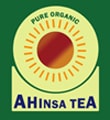Is organic food a basic need? Most of us would argue that no, it is not. However, for an organic consumer, it is a food and hence it must be a basic need for him/her. For some of our organic food is a luxury good. In the market often organic food fetches a higher price. Available quantities in the market are often small and short in supply.
What do we mean by basic needs? According to UNDP, the basic needs should be looked at in two directions and they are: (i) ensuring the provision of certain minimum requirements of a family for private consumption (adequate food, shelter, and clothing); and, (ii) essential services are provided by and for the community at large (safe drinking water, sanitation, public transport, health, and education). The new trend, however, is to include the participation of all players and the protection of human rights in the definition of basic needs. So, first of all, the person must live, then s/he should be a part of the community for giving and taking certain goods and services to and from the community.
Organic agriculture has to be supported by a whole nation, as a matter of fact by the whole world. It leads to the creation of more opportunities for education, health, environmental improvements, and human development. It means an increase of health benefits to every person. It means a better environment, cleaner water and purer air in the world. However, why organic food is more expensive? Instead of answering to this question, it is better to ask why nonorganic food is cheaper? It is cheaper because in pricing it did not take into account all types of costs associated with producing, processing and selling that commodity. For example soil erosion costs both farmers as well as nearby water users. Pesticides and weed killers impose a huge cost to the environment. Soils get contaminated. Large scale mechanization and other fossil fuel using activities contribute to climate change and many other environmental damages. Excessive use of fertilizer imposes a huge environmental cost to the ecosystem.
To begin my argument, let me ask a fundamental and basic question very pertinent to this topic. Have the traditional or non-organic food producers accounted for these costs to their food cost calculations? Did not they pass most of these unaccounted costs to the society at large? How have they have been able to do this? Could not market take this accounting clearly and properly? Is market such a weak institution or allocation mechanism?
Modern-day society is complex. No mechanism has been capable of tackling our day to day needs as much as the market system. But can we conclude that the market is capable of managing or handling the organic food market? Are market forces alone capable of taking into account the environmental costs (and benefits too) of our day to day activities? My answer is NO, definitely not only by market forces alone. Ecological and natural resource status and conditions are binding our activities everywhere, all the times. Public goods, common properties, and externalities associated with environmental considerations including inter-temporal matters have not been able to address adequately by the market forces. The organic food market is a combination of all such complexities where the market has been incapable of creating a level playing field for all such players to play.
Certification is one alternative evolved over the years so that an independent party is auditing and monitoring the agreed norms and values. I have been writing a lot on this matter to demonstrate that certification has its weaknesses. So, what is the way forward? To my mind, the trust between various players of the organic food system is the only way out. I will elaborate on this matter in my next write up. In other words, a person must take part in the decision-making process that might have an influence on him or her irrespective of whether it is the organic food system or not. Presented by, Prof. P. Abeygunawardena
